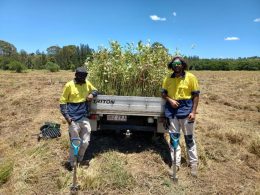The United Nations Environment Programme (UNEP) has partnered with the Zero Waste Foundation to enhance sustainable waste management and environmental protection. As part of UNEP’s “Early Warning and Global Environmental Monitoring Services” project, the collaboration will utilise geospatial data, stakeholder engagement, and community-led initiatives to address the triple planetary crisis—climate change, biodiversity loss, and pollution.
A key component of this initiative is the establishment of a Zero Waste Knowledge Hub, which will contribute to the Istanbul Environment Centre, an undertaking of the Zero Waste Foundation. The Hub will integrate with the One UN Geospatial Situation Room, a data platform used by 42 UN agencies, and will also be incorporated into the World Environment Situation Room, UNEP’s global data and knowledge platform.
By providing real-time, high-quality geospatial data, the Hub aims to assist policymakers, urban planners, and environmental experts in making evidence-based decisions to reduce waste and promote sustainable urban development. It will integrate remote-sensing and Earth observation data to track progress on environmental targets outlined in the 2030 Agenda for Sustainable Development.
“Timely and high-quality data are critical for driving sustainability. Through these platforms, we will ensure that geospatial data becomes a powerful tool in tackling environmental challenges,” said Alexandre Caldas, Chief of Early Warning and Data Analytics Branch at UNEP. “By working with the Zero Waste Foundation, we are strengthening our capacity to anticipate environmental risks and accelerate the transition to a circular economy.”
The partnership will also focus on public engagement, including stakeholder consultations, youth-led initiatives, and the development of an online educational platform promoting zero-waste principles. The Zero Waste Knowledge Hub will serve as a global repository of best practices, case studies, and success stories, fostering knowledge-sharing and capacity-building.
“Zero waste is not just a goal – it is a movement for systemic change,” said Samed Agirbas, President of the Zero Waste Foundation. “By joining forces with UNEP, we are bringing together data, education, and community action to transform waste management worldwide.”
The initiative will also support cities in implementing zero-waste policies, with pilot projects demonstrating scalable solutions. Discussions are underway to establish a zero-waste funding facility aimed at attracting investment in sustainable waste management initiatives.
This collaboration aligns with UNEP’s broader mission to accelerate global progress towards a healthier, more resilient planet. By combining geospatial intelligence, digital innovation, and grassroots engagement, UNEP and the Zero Waste Foundation seek to set a new standard for waste reduction and circular economy practices.














